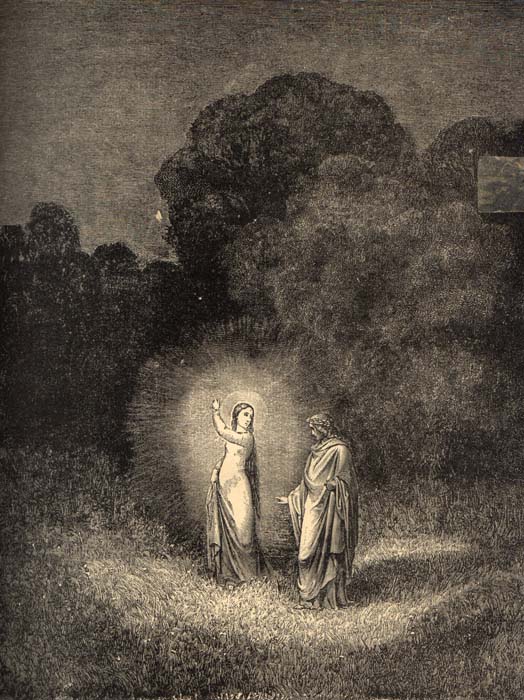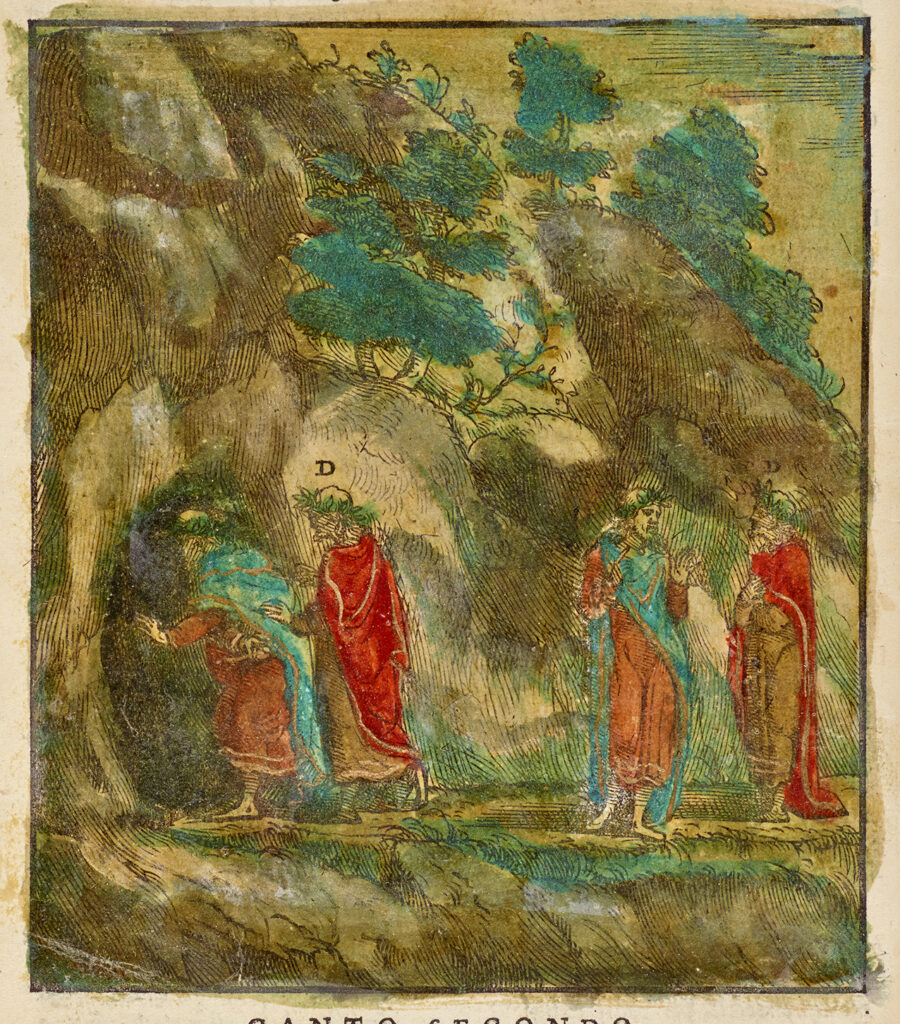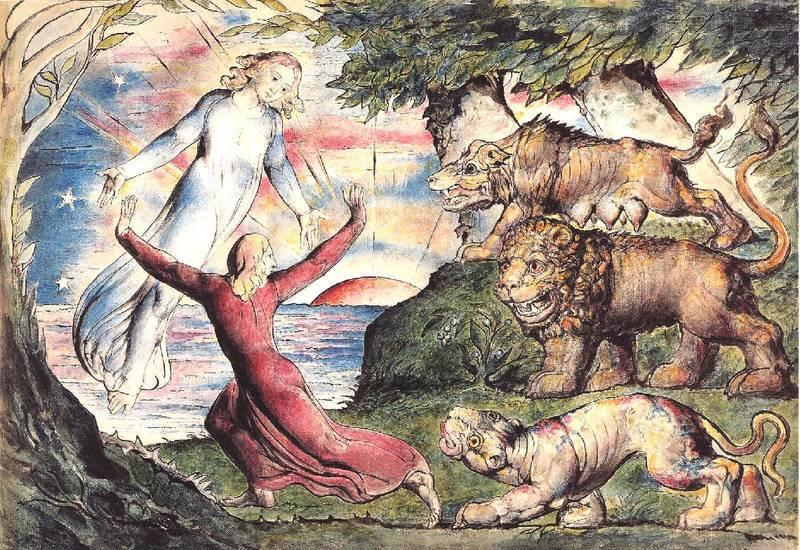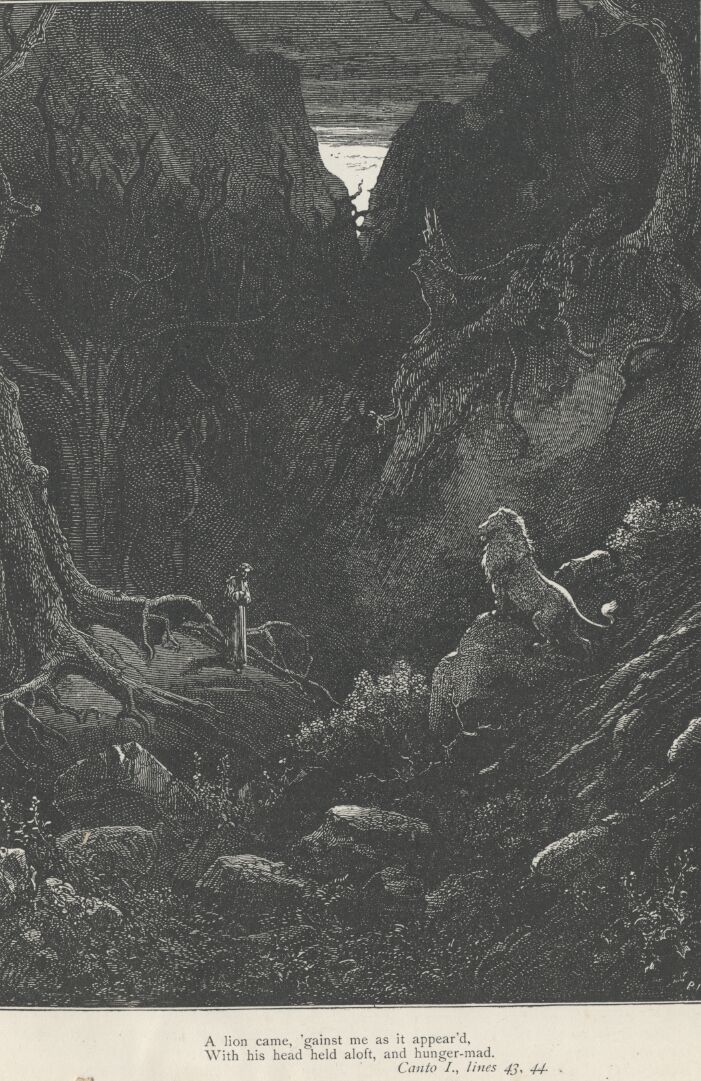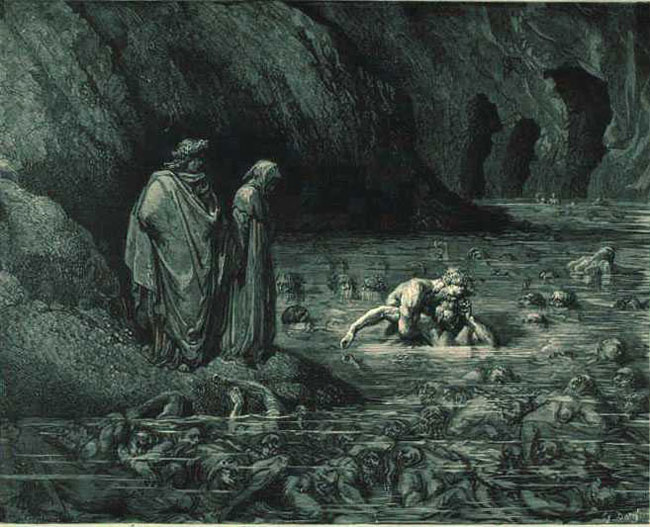
Ugolino della Gherardesca viene punito insieme all’arcivescovo Ruggieri degli Ubaldini nell’Antenora, la seconda parte del cerchio nono. Qui vengono puniti i traditori della patria. Ugolino, che sta mordendo la testa di Ruggieri, si ferma dal suo macabro pasto e si pulisce la bocca con i capelli della sua vittima prima di divulgare la sua tragica storia. È morto affamato insieme ai suoi giovani figli a causa del tradimento da parte dall’arcivescovo Ruggieri. Il fatto che Dante ci presenta i figli di Ugolino come ragazzi assai giovane può essere deliberato per sottolineare due vittime innocenti nel conflitto e che tanto Ugolino come Ruggieri sono disposti a sacrificarli per ottenere vantaggi politici. Nel caso di Ugolino, specificamente, il suo successo nella politica diventa più grande e importante che il suo proprio amore per la sua famiglia e che lo parta a tradire gli stessi.(XXXIII, 1-71) A questo punto nella vicenda di Ugolino viene il silenzioso indizio della sua punizione. Ugolino fu dichiarato il gran traditore di Pisa. Partito dalla sua patria come ghibellino poi tornato come guelfo, Ugolino sembra di aver tradito i suoi compaesani dopo l’acquisizione di Pisa. Quando, secondo le note dell’Inferno nell’edizione di Robert M. Durling, Ronald L. Martinez, Robert Turner, al suo ritorno a Pisa, Ugolino trama la detronizzazione del suo proprio nipote, Nino Visconti, e cercò un’alleanza con Ruggieri. In questa prima parte si può capire che Dante mette a Ugolino al nono cerchio per il suo tradimento al suo partito (i ghibellini) e allo stesso tempo si capisce perché Ruggieri viene inserito qui insieme a lui. Però resta ancora la questione del cannibalismo. Allora, Ugolino è tradito da Ruggieri e viene imprigionato nella Torre della Muda insieme ai suoi figli. Dopo nove mesi di prigionia, i figli muoiono uno dopo l’altro alla fine solo il conte rimane vivo. Ugolino, cieco a causa dalla fame, rantola sopra i cadaveri dei figli per due giorni (XXXIII, 72 – 74). ¨Poscia, più che ´l dolor, poté ´l digiuno. (XXXIII, 75) Ed ecco qui la linea che magari ci rivela ciò che accade quando solo Ugolino rimane in vita. Sembra che Ugolino ci stia proprio ammettendo che in quei ultimi giorni la sua fame abbia avuto più forza che il proprio dolore d’aver perso i suoi figli. Detto questo ed insieme alla maniera in cui Ugolino sta mangiando la testa di Ruggieri sembra che il conte, nei suoi ultimi attimi, abbia risolto al cannibalismo di modo che possa allungare la sua vita. Questo è proprio indicativo del contrappasso che Dante gli attribuisce, come in vita il conte s´ha mangiato i propri figli ora nel inferno lui passa la sua eternità divorando al responsabile della sua sfortuna.

